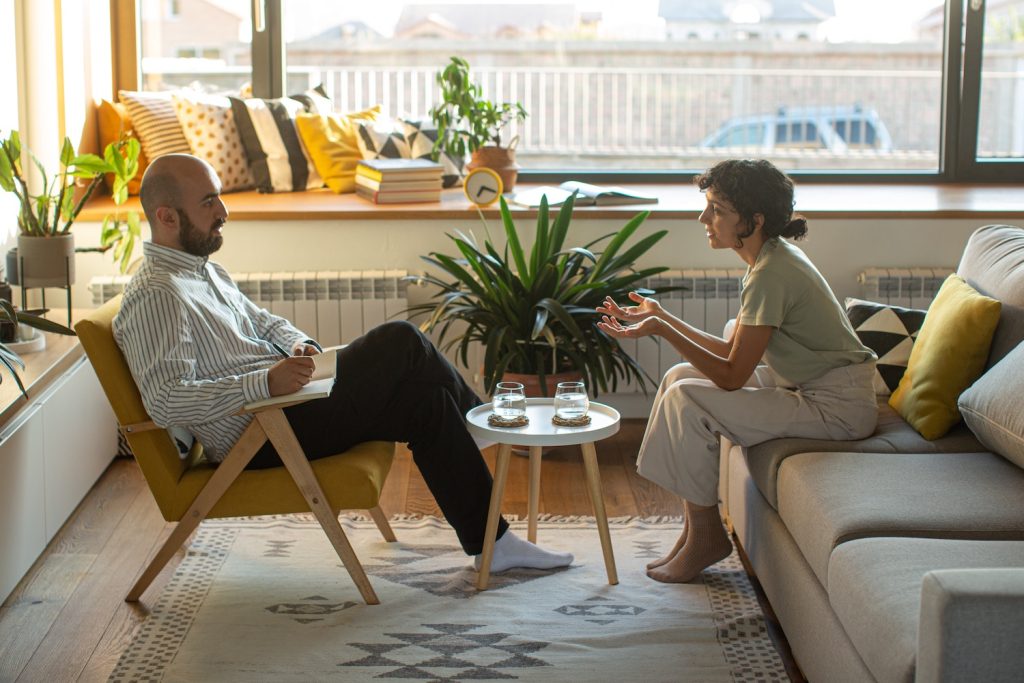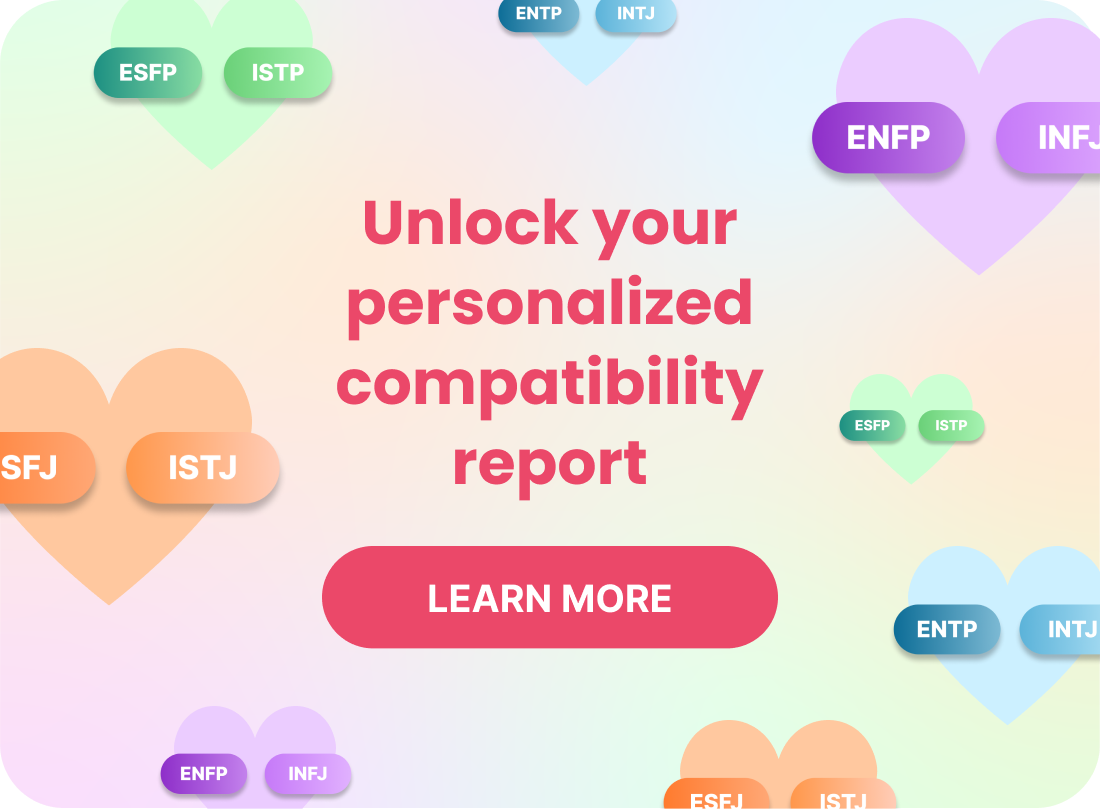How to Stop Being Insecure in a Relationship
Do you find yourself constantly doubting your worth or feeling anxious in your relationship? Insecurities can can plague even the strongest of relationships, causing unnecessary stress and strain. But fear not! With a little self-reflection and proactive steps, you can learn to overcome insecurities and build a healthier, more confident relationship. In this blog post, we look at how to stop being insecure in a relationship.

Do you find yourself constantly doubting your worth or feeling anxious in your relationship? Insecurities can can plague even the strongest of relationships, causing unnecessary stress and strain. But fear not! With a little self-reflection and proactive steps, you can learn to overcome insecurities and build a healthier, more confident relationship. In this blog post, we look at how to stop being insecure in a relationship.
We will explore common triggers for insecurities, the importance of self-esteem and self-acceptance, open communication and healthy boundaries, building trust, practicing mindfulness, and seeking professional support when needed. By following these strategies, you can foster trust, promote personal growth, and create a more fulfilling connection with your partner.
So, if you’re ready to leave behind the shackles of insecurity and embrace a more confident and trusting relationship, let’s dive in and discover how to stop being insecure in a relationship.
Understanding the root causes of insecurity
Insecurity in relationships can stem from various sources, and understanding the root causes is essential for overcoming these feelings. By identifying your triggers and reflecting on your personal history, you can gain clarity and begin the journey toward building a more secure relationship. Here are some common reasons for feeling insecure in a relationship:
1. Past Experiences: Previous negative experiences, such as betrayal, infidelity, or emotional abuse, can leave lasting scars and impact your ability to trust in future relationships. It’s important to recognize how past experiences may be influencing your current feelings of insecurity. If your current partner has not given you a reason to doubt their trustworthiness, try to separate your past from your present and give them the benefit of the doubt.

2. Low Self-Esteem: Low self-esteem can contribute significantly to feelings of insecurity. If you constantly doubt your worth or believe you’re not deserving of love and affection, it can create a cycle of self-doubt that affects your relationship. Reflecting on your self-perception and working on building self-esteem can help alleviate insecurities.
3. Fear of Abandonment: The fear of being abandoned or rejected by your partner can trigger feelings of insecurity. This fear may stem from early childhood experiences or previous relationship patterns. Recognizing and addressing this fear can help you develop healthier coping mechanisms and build more secure relationships.
4. Comparisons and Social Media: Constant comparisons with others, especially on social media, can fuel feelings of insecurity. The curated online lives of others can make you question your own worth and desirability. Remember that social media often portrays an idealized version of reality, and focus on valuing yourself for who you truly are.
5. Lack of Communication: Insufficient communication in a relationship can lead to misunderstandings and assumptions. When you don’t openly discuss your needs, fears, and concerns, it can create a breeding ground for insecurity. Open and honest communication is vital for building trust and reducing insecurities.
6. Toxic Partner: Being in a relationship with a toxic partner can also contribute to insecurities. If your partner constantly belittles or undermines you, it can erode your self-esteem and create feelings of insecurity. In such cases, it’s important to recognize the toxicity and prioritize your own well-being. Furthermore, if your partner has a history of cheating or being emotionally unavailable, it might be time to reassess the relationship and determine if it is healthy for you.
Understanding the root cause of your insecurities is the first step toward learning how to stop being insecure in relationships. It’s important to reflect on these possible triggers and consider how they may relate to your own experiences. By gaining insight into your personal history and thought patterns, you can begin to address the root causes and work towards building a more secure relationship with yourself and your partner. So don’t be afraid to dig deep and explore, as it will ultimately help you create a stronger and healthier bond with your partner.
How to stop being insecure in a relationship by enhancing self-esteem and self-acceptance
One of the keys to overcoming insecurity in relationships is to cultivate a strong sense of self-esteem and self-acceptance. When you value and love yourself, it becomes easier to trust and believe in the love and acceptance of your partner. Here are some practical tips to enhance self-esteem and self-acceptance:
1. Practice Self-Care: Taking care of yourself physically, emotionally, and mentally is crucial for building self-esteem. Engage in activities that bring you joy and relaxation, prioritize self-care routines, and make time for hobbies or interests that make you feel good about yourself.
2. Set Achievable Goals: Setting realistic and achievable goals can boost your confidence and sense of accomplishment. Break down bigger goals into smaller, manageable steps and celebrate each milestone along the way. This not only enhances self-esteem but also reinforces your belief in your capabilities.
3. Celebrate Accomplishments: Celebrate your accomplishments, both big and small. Acknowledge your achievements, whether it’s completing a project at work, learning a new skill, or overcoming a personal challenge. Recognizing your successes reinforces your worth and builds self-esteem.
4. Challenge Negative Self-Talk: Pay attention to your inner dialogue and challenge negative self-talk. Replace self-critical thoughts with positive affirmations. Remind yourself of your strengths, talents, and positive qualities. Over time, this practice can help rewire your thinking patterns and boost self-esteem.

5. Surround Yourself with Positive Influences: Surround yourself with supportive and positive influences, including friends, family, and mentors who uplift and encourage you. Limit exposure to toxic relationships or negative environments that can contribute to feelings of insecurity.
6. Explore Your Strengths: Take time to explore and identify your strengths. What are you good at? What do others appreciate about you? Embrace these strengths and use them as a foundation for building self-esteem. Recognizing your own worth and unique qualities can help combat insecurities.
7. Delete Social Media: If you find yourself constantly comparing yourself to others on social media, consider taking a break or deleting your accounts altogether. This can help reduce the constant pressure to measure up and allow you to focus on self-acceptance and building a healthy sense of self.
Learning how to stop being insecure in a relationship can start with loving yourself more. By incorporating these practical tips into your daily lives, you can work towards enhancing self-esteem and self-acceptance. Moreover, by developing a strong sense of self, we can cultivate more secure relationships built on mutual trust and acceptance. Remember, building a healthy relationship starts with building a positive and secure relationship with yourself. So, take the time to nurture your own well-being and see how it positively impacts your relationships.
How to stop being insecure in a relationship using open communication and healthy boundaries
Open communication and healthy boundaries play a vital role in creating a secure and fulfilling relationship. By fostering a safe environment for honest dialogue, you can build trust, address concerns, and reduce insecurities. Here’s how you can cultivate open communication and set healthy boundaries to help you stop being insecure in a relationship:
1. Prioritize Open and Honest Communication: Make open and honest communication a priority in your relationship. Create a safe space where both you and your partner feel comfortable expressing thoughts, feelings, and concerns without fear of judgment or rejection. Regularly check in with each other to ensure that you’re both on the same page.
2. Express Your Needs Clearly: Clearly express your needs, desires, and expectations to your partner. Be specific and avoid assuming they will automatically know what you want. Effective communication involves being assertive while remaining respectful and understanding of each other’s perspectives.

3. Active Listening: Practice active listening when your partner is sharing their thoughts and feelings. Give them your undivided attention, validate their emotions, and avoid interrupting or becoming defensive. Repeat back what they’ve said to ensure you understand correctly and show that you genuinely value their perspective.
4. Set Healthy Boundaries: Establishing clear and healthy boundaries is essential for maintaining a sense of self and preventing insecurity. Discuss with your partner what is acceptable and unacceptable behavior in the relationship. Respect each other’s boundaries and communicate openly if they need to be adjusted or reevaluated.
5. Conflict Resolution Skills: Learn effective conflict resolution skills to navigate difficult conversations without escalating conflicts or triggering insecurities. Use “I” statements to express your feelings rather than placing blame, and focus on finding solutions instead of dwelling on past mistakes. Seek compromises and work together as a team to resolve conflicts.
6. Seek Professional Help if Needed: If you find that communication and conflict resolution are consistently challenging, it may be beneficial to seek the assistance of a couples therapist or relationship counselor. A professional can provide guidance and tools to navigate difficult conversations and strengthen your communication skills.
Open communication and boundaries with your partner are core in helping you become less insecure in your relationship. By prioritizing open communication and setting healthy boundaries, you can foster a more secure and trusting relationship. Be patient with each other as you work towards building stronger communication skills. By continuously nurturing your relationship through effective communication, you can address insecurities and build a healthier and more fulfilling bond with your partner.
Building trust and overcoming jealousy in a relationship
Building trust is crucial in any relationship, as it helps create a sense of security and minimizes feelings of insecurity and jealousy. Here are some strategies for building trust and managing jealousy to help you stop being insecure in a relationship:
1. Practice Empathy and Understanding: Put yourself in your partner’s shoes and try to understand their perspective. Instead of immediately reacting with jealousy, consider their intentions and motivations. Developing empathy can help you overcome jealousy and build trust by fostering a deeper connection and understanding between you and your partner.
2. Let Go of the Past: Past experiences can sometimes contribute to feelings of jealousy and hinder trust-building in a relationship. It is important to acknowledge and address any unresolved issues from the past, whether they involve trust or infidelity. If your current partner has been unfaithful and untrustworthy in the past you need to ask yourself if you can truly let go and move forward or if it is better to end the relationship.
3. Address Jealousy Issues: Jealousy often stems from insecurity and can damage trust if left unaddressed. Acknowledge and communicate your feelings of jealousy with your partner in a calm and non-accusatory manner. Share your concerns and fears openly and listen to their perspective as well. Together, you can work towards finding solutions and building a stronger foundation of trust.
4. Set clear boundaries: Clearly define boundaries within your relationship to prevent misunderstandings and reduce feelings of jealousy. Discuss what is acceptable and unacceptable behavior, both in terms of interactions with others and privacy within the relationship. Respecting each other’s boundaries can help establish trust.

5. Focus on Self-Improvement: Instead of letting jealousy consume you, focus on self-improvement and personal growth. Invest time and energy in activities that enhance your confidence and self-worth. By nurturing your own well-being, you become less dependent on external validation and more secure within yourself.
6. Cultivate Trust Through Open Dialogue: Cultivate trust by engaging in open and honest dialogue about your insecurities, fears, and needs. Encourage your partner to do the same. By sharing vulnerabilities and actively listening to each other’s concerns, you can deepen your understanding and build a stronger sense of trust.
When it comes to learning how to stop being insecure in your relationship, jealousy can be a challenging emotion to overcome. Implementing these strategies in your relationship to build trust and effectively manage jealousy can help you on your journey toward not being insecure. Be patient and communicate openly with your partner as you work towards strengthening trust and minimizing insecurities. So, set boundaries, practice empathy, and be open and honest about your feelings of jealousy to build a stronger, more secure relationship.
Practicing mindfulness and emotional regulation
Mindfulness is a powerful tool for managing insecurities and fostering emotional regulation in relationships. By cultivating present-moment awareness and non-judgmental acceptance, mindfulness allows us to navigate challenging emotions and circumstances with greater clarity and compassion. Here’s how mindfulness can help you stop being insecure in a relationship, along with some recommended exercises and techniques:
1. The Role of Mindfulness in Managing Insecurities: Mindfulness helps us become aware of our thoughts, emotions, and bodily sensations without getting caught up in them. This awareness enables us to observe our insecurities from a compassionate and non-judgmental perspective. By acknowledging these insecurities, we can begin to understand their underlying causes and respond to them with greater wisdom and self-compassion.
2. Mindfulness Exercises for Emotional Regulation: One effective mindfulness exercise for emotional regulation is deep breathing. Take slow, deep breaths, focusing on the sensation of the breath entering and leaving your body. Another technique is body scan meditation, where you systematically bring awareness to each part of your body, noticing any tension or discomfort and allowing it to release.

3. Cultivating Acceptance and Non-Attachment: Mindfulness teaches us to accept our emotions and experiences without judgment or resistance. Rather than trying to suppress or control difficult emotions, we learn to observe them with curiosity and kindness. By practicing non-attachment to our thoughts and emotions, we create space for them to arise and pass away naturally.
4. Staying Present During Challenging Moments: Mindfulness encourages us to stay present and fully engage in the present moment, even during challenging moments in our relationships. By bringing a mindful awareness to difficult conversations or conflicts, we can respond with more clarity and empathy, rather than reacting impulsively based on our insecurities.
5. Benefits of Mindfulness in Relationships: Practicing mindfulness in our relationships offers numerous benefits. It helps us communicate more effectively, as we are better able to listen and respond with empathy and understanding. Mindfulness also enhances our ability to regulate our emotions, reducing the likelihood of reacting out of insecurity or fear. Additionally, it cultivates a sense of gratitude and appreciation for our partners, fostering a deeper connection.
Mindfulness can be an important part of your journey in learning how to stop being insecure in a relationship. So, try to incorporate mindfulness into your daily life. By practicing mindfulness exercises and techniques, you can develop emotional regulation skills and navigate insecurities more effectively. Being present and mindful allows for deeper connection, understanding, and growth within the relationship.
Seeking professional support to help you stop being insecure in a relationship
Seeking professional help, such as therapy or counseling, should be normalized and considered a valuable resource for addressing deep-rooted insecurities and relationship challenges. Here’s why you should consider therapy and some tips on finding a qualified therapist or counselor:
1. The Importance of Therapy: Therapy provides a safe and confidential space to explore and address insecurities, fears, and relationship challenges. A qualified therapist can offer guidance, support, and practical tools to navigate these issues. They can help you gain insight into your patterns of thinking and behavior, develop coping strategies, and foster healthier communication and relationship dynamics.
2. Breaking the Stigma: It’s important to break the stigma surrounding therapy and understand that seeking professional support is a sign of strength, not weakness. Just like we visit a doctor for physical health, therapy focuses on mental and emotional well-being. Everyone can benefit from therapy, regardless of their circumstances or the severity of their challenges.
3. Choosing the Right Therapist or Counselor: Finding the right therapist or counselor is crucial for a successful therapy journey. Here are some tips to consider:
- Research: Start by researching therapists or counselors who specialize in couples therapy or individual therapy for relationship issues. Look for professionals with experience and expertise in the specific areas you want to address.
- Referrals: Seek referrals from trusted friends, family, or healthcare professionals who have had positive experiences in therapy. Their recommendations can provide valuable insights.
- Online Directories: Utilize online directories such as Psychology Today, BetterHelp, or GoodTherapy to search for therapists in your area. These platforms often include detailed profiles, specialties, and client reviews.
- Compatibility: Schedule initial consultations with potential therapists to assess their approach and see if you feel comfortable and understood. It’s essential to establish rapport and a sense of trust with your therapist.

4. Affordability and Accessibility: Consider the affordability and accessibility of therapy options. Some therapists offer sliding scale fees based on income, and many online therapy platforms provide more affordable options. Additionally, teletherapy allows for remote sessions, making therapy more accessible for those in rural areas or with limited mobility.
5. Online Therapy Options: Online therapy has become increasingly popular and convenient. Platforms like BetterHelp and Talkspace offer a wide range of therapists and counselors who can provide virtual sessions from the comfort of your own home.
Therapy is a valuable resource for addressing deep-rooted insecurities and relationship challenges. Seeking professional support can lead to personal growth, improved communication, and enhanced overall relationship satisfaction. Therapy is a collaborative process, and finding the right therapist can make a significant difference in achieving positive outcomes. It takes courage to seek help and prioritize your mental and emotional well-being. Embrace the journey towards a healthier, happier relationship. If you are interested in finding a therapist, Healthline also has eight helpful tips for finding the right therapist.
Final thoughts on how to stop being insecure in a relationship
In conclusion, learning how to stop being insecure in a relationship is not an overnight process, but with dedication and self-reflection, it is possible to find a sense of security and confidence. It starts with recognizing and challenging our negative thoughts, communicating openly with our partner, and building a strong foundation of trust.
Additionally, practicing self-care, setting healthy boundaries, and seeking support from loved ones or professionals can greatly contribute to our journey toward becoming more secure in relationships.
We all have insecurities, but they do not define us or our worth. By embracing vulnerability and working towards personal growth, we can create a loving and secure environment for ourselves and our partners. So, let go of self-doubt, embrace your strengths, and nurture your relationship with love, trust, and understanding.

Remember that everyone’s journey of learning how to stop being insecure in a relationship is unique, and progress may come at different paces. Stay dedicated, be patient with yourself and your partner, and embrace the transformative power of personal growth.
Note: This blog post is a general guide and does not replace professional advice. If you are experiencing severe insecurity or emotional distress, it is recommended to seek support from a qualified mental health professional.
If you found this post helpful, you might enjoy 100 intimate questions to ask your partner to increase the intimacy between you.




